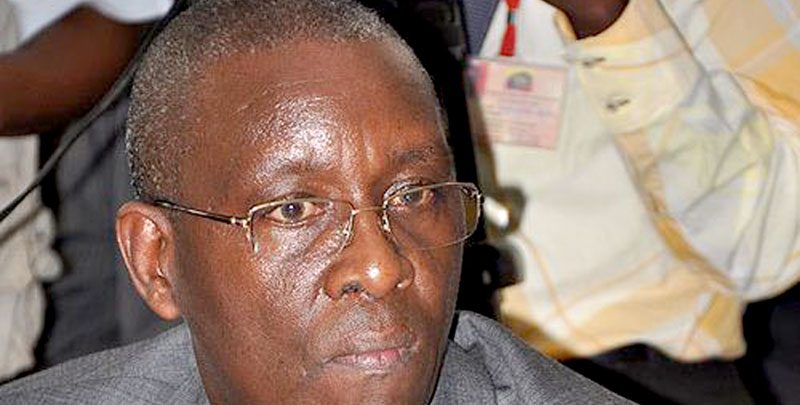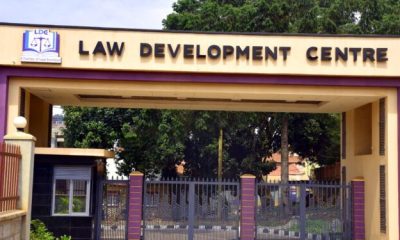News
Youth Fund arrests trigger panic
Hundreds of youth across the country have been arrested and others are on the run for failure to return millions of money that was lent to them under the Youth Livelihood Programme managed under the Ministry of Gender, Labour and Social Development.
In Gulu, officials from the District Office for Gender, Labour and Social Development, which is tasked with managing the Youth Livelihood Program recently mounted an operation to arrest youth leaders on grounds of failure to return millions of money that was given to their groups. Some of the youth were threatened with jail in case they refused to return the money.
Gulu district was ranked as one of the worst performers under the programme in the last financial year 2015/2016, as none of the 94 youth groups managed to return the full amount of the money that was loaned to them. Lending activities under the programme in the district were suspended as recovery was said to be just about 47%, below the Ministry’s 50% minimum requirement.
By the time the officials launched the forceful loan recovery plan last week, some of the groups had recorded zero returns. The 94 youth groups received between Ushs 5m and Ushs8.5m to invest in mainly agribusiness related enterprises such as piggery and produce buying.
But the arrests have caused widespread anxiety especially for the parents of the youth, many of whom have resorted to selling off family property to raise money to secure their children’s freedom.
Andrew Onen, the Assistant Probation and Welfare Officer Gulu district, told The Sunrise recently that they have resorted to arrests and detentions as a way of recovering the money still among the youth groups in the district.
Onen said that resorting to tough measures has had some successes in terms of forcing the youth to return money in parishes like Awach, Paicho, Unyama and Bungatira where the operation started two weeks ago.
“We are arresting these youth group leaders so that recovery is made and the other youth group interested can also benefit. We shall continue with the operation because until we reach them, they do not want to pay. So we are resorting to the tougher measures,” said Onen.
Onen says they targeted the group leaders especially the Chairman and the Treasurer. By Thursday last week, Onen’s team, with assistance from Police had arrested and detained leaders of eight groups.
The Community Development Officer of Amuru district told The Sunrise that the recovery rate in the district is not any better. And sources in other districts like Mityana also reveal that recovery rates are very low which have forced the district officials to mount similar swoops in which they arrested the youth in February.
The only source of respite perhaps for the managers of the fund in the north came from Nwoya district, where recovery was said to be above 75%.
Why failure?
Accounts from various stakeholders from Gulu as well as other parts of the country point to a whole range of factors behind the failure or unwillingness by the young people to repay loans on which they were not expected to pay interest at least in the first 12 months.
Hash weather conditions coupled with diseases that affected most parts of the country last year, have been blamed for the failure of most enterprises, as majority of them invested in disaster-prone agribusiness related activities.
Lack of a proven track record of running a particular business, inadequate due diligence by the district officials who are responsible for judging the worthiness of an applicant, and weak bonding among members, have also led to laxity in business that eventually proved too costly.
As Ojara Lutada, the Chairman of Cetkana Youth Piggery group, and one of those who were arrested for zero recovery of the Ushs 8.6 million they received, attributed his group’s failure on the death of all the 22 piglets they had stocked due to swine fever that swept most parts of the region in recent months.
He also blamed his 11 fellow members for abandoning the group, a responsibility that fell squarely on him and his colleagues in the executive.
Dora Aber, the Treasurer of Paminano Youth Produce Buying and Selling group which received eight million shillings from the programme, also blamed weak leadership and bad weather for the failure of their rice buying venture.
“As the treasurer, I found it hard to mobilize the members because when we started getting challenges with the spoilt rice that gave us losses, members thought the group had failed and started minding their own business. Even when I plead with the chairman to call members for a meeting to see how to recover the money, he does not want. They have left me alone in the group and this is stressing me. Now they have arrested me and I have to mobilize alone so that we pay back the money.”
Lutada expressed similar sentiments of despair of being left to suffer alone by colleagues.
“For us when we got the eight million, members thought they would benefit immediately. When they saw that the 22 piglets we bought were not doing well, they deserted the group and now all the pigs have died due to a sicknesses we don’t know,” Lutada lamented: “Now, we are left just three people in the group but we cannot recover a single coin. The only thing we can do is to sell our fathers cattle to pay back the money to escape prison.”
He however acknowledged that their group failed due to lack of knowledge on how to run a piggery business, as well as the requirement to force the youth to form groups as a pre-condition to accessing money.
Onen blamed the poor attitude among the youth of being unserious with the money or of thinking that the money was a grant that was not meant to be repaid.
But other stakeholders in the district blamed the failure of the District Community Development Officers, to closely monitor and supervise the youth projects as have given way to minor weaknesses to grow into major problems.
Perhaps as an example of the vital role played through close monitoring of Community Development Officers, in Nwoya where the the CDO was very active in supervising the projects, recovery has been over 75 percent.
In fact according to Anthony Oboma, the CDO Purongo Sub County in Nwoya district, five of the seven groups that got funding in the 2015/2016 financial year, have managed to return the money. The projects got funding are produce buying and selling, vegetable growing, hotel catering and tailoring.
In 2014, the government launched the Ushs.265 billion five year programme as a way of providing financial support to the youth allegedly to fight unemployment through starting different enterprises.
Recently, the ministry suspended activities of the youth fund in many district due to low levels of recovery.
Economists have instead blamed the government for poorly conceiving and implementing the programme.
Ramathan Ggoobi, who teaches Ugandan Economy at Makerere University Business School (MUBS) says the youth fund was a wrong intervention to the unemployment problem.
“They are trying to address a wrong disease. The youth are jobless not simply due to lack of money but largely because most of them are unemployable.” Ggoobi adds: “Also the economy is in such a way that Small and Medium Enterprises (SMEs) cannot succeed. And I suspect that government is aware of this which is why these interventions are temporary, which is why they bring money around elections period.”
But even for those that have been arrested, experts say it may be difficult to successfully prosecute them. In fact, when The Sunrise contacted Gulu’s Police PRO Jimmy Okema for information of the number of youth arrests, he said he was aware of none.
The fact that money was advanced to groups, instead of an individual, creates a major challenge of proving strict liability. According to James Ebitu, the former coordinator of the programme, the government some of the challenges like bad weather and diseases are ‘understandable’.
“Arrests are being done only for those youth who refuse to cooperate,” noted Ebitu, who also pushed the blame on supervision to the district Chief Administrative Officers (CAO), whom he said is responsible for ensuring recovery of the money from the youth. Indeed, in some of the poorly performing districts in Northern Uganda, the laxity of the community development officers (CDOs) in supervising beneficiaries, emerged as a major source of failure of most groups.
The low levels of loan recovery being witnessed under the YLP however mirror several past other government interventions such as the Entandikwa programme, Youth Adventure Fund in Kampala, where the government has played an active role of a lending institution.
Comments



















